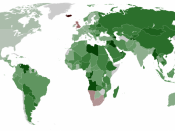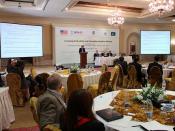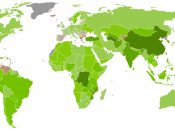Ten Challenges of Democratic Consolidation
Democratic consolidation confronts a number of characteristic challenges in new and insecure democracies. What is striking about these challenges varies across countries (and over time), however, and it would be an overstatement to characterize the complete resolution of any one of them as 'necessary' for democratic consolidation. Beyond establishing and routinizing broad commitment to the rules of the democratic game, there are probably no strictly necessary conditions for democratic consolidation, except removing the military as a 'reserved domain' of power that limits the electoral accountability of government to citizens. However, the more these challenges persist in acute form, and the more they cumulate, unresolved, the less likely democratic consolidation will be.
1. Economic Performance
It is by now a truism that the better the performance of a democratic regime in producing and broadly distributing improvements in living standards, the more likely it is to endure.
Many truisms are false, outdated, or misleading, but in contrast to some observers of Latin America, I do not believe this generalization is ready yet for the junk heap of comparative politics theory. Beyond the examples of numerous democratic implosions during the Great Depression of the interwar years and the historic vulnerability of Latin American democracies during hard economic times, powerful quantitative evidence for the argument emerges from the research of Przeworski and his colleagues. Their analysis of post-WWII regimes (1950-90) shows that while the level of economic development powerfully shapes the survival prospects of democracy and affluent democracies survive no matter what, among moderate-income and especially poor countries democracy is much more likely to last when the economy grows rapidly, with moderate inflation. (Przeworski et al. 1996, 41-42)
They define as 'affluent' those countries with annual per capita incomes of $6,000 or more (in purchasing-power parity US dollars, 1985...


